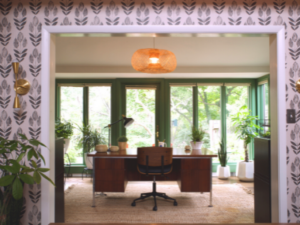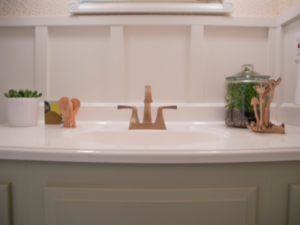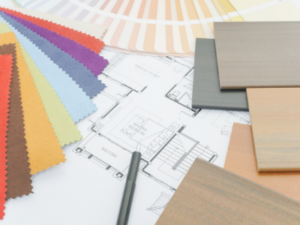Why It’s So Hard To Tidy Up
August 24, 2020
DO WE CONTROL OUR STUFF, OR THE OTHER WAY AROUND?
If you have children you understand the clutter and mess that comes with them. You fully grasp their hoarding potential of cheap plastic toys collected via birthday parties, arcades, and fast food meals. Their laissez faire attitude using a dresser drawer as a literal garbage can, impresses me. I know I’m not alone when I need the kids to be out of the house when I tidy up so I can smuggle items into the donate bin without them knowing, only to ask “Where’s my ______” while I casually shrug.
Our kids aren’t the only ones with hoarding issues, let’s not pin this whole thing on them. Look around the room you are sitting in now. Here’s some hard love: You don’t need all this stuff.
This may sound like a strange comment coming from an Interior Designer, one who makes a living on people adding things to their homes. Well, I’m not saying your furniture and decor isn’t necessary – these things bring your personality into your space and are crucial to you feeling happy. But what I am saying is that you probably don’t need ALL of the furniture and decor (and art supplies, and papers, and clothes, and accessories, and toys, and mismatched electronics/wire-thingies, etc.) So then why do we hold onto all of this crap? There is a science to all of this mess.
For the Love
To care about things seems possessive, but loving things doesn’t make us greedy. There are two types of materialism, (1) Terminal, which is wanting things for your own sake or to impress others, and (2) Instrumental, which is when an object symbolizes an emotional bridge between you and another person, event, or time in your life. These emotional connections are real and they provide us with comfort and joy. As we age the immediate need for objects that make us feel safe declines, like a child’s worn stuffed toy, but as we grow up things that once held intense emotions for us can still tug at our heartstrings as an adult. This is because our possessions are seen as an extension of ourselves.
A close relationship with our stuff can make it hard to tell apart what is ME and what is MINE. It’s easy to get wrapped up in the emotional involvement with our things. Sometimes we feel guilty about donating a box of objects because we feel responsible for these items, like the items may be lonely without us. (Hello, Toy Story franchise!) What does it say when we get rid of the worn stuffed toy? That we are reasonable? Careless? Mature? Loving?
Attachment to our possessions seems universal, but our level of attachment can vary greatly from one person to the other. Same reason some people love to purge and others can’t help but hoard. Although it may be harder than others to decide whether to treasure or pitch the preschool macaroni art, it is important to remember that if we do decide to part with the crumbly masterpiece that the memories of our sweet little babies aren’t going anywhere.
Relax and Let Go
If our things mean so much to us why should we eliminate the clutter from our life? Our possessions can bring us joy but can also quickly tip the scale and have us nose-diving into a sea of chaos and unnecessary stress. Think about how much time you spend each day re-stacking the piles of paper, regrouping trinkets, stuffing items into already crammed cupboards, or trying to find something that you know is here somewhere? If we aren’t able to eliminate things that do not contribute to our happiness we become a slave to our belongings.
Ok, are you ready to start tidying up? Together let’s create a happy space for your and your family to have a happy life!
Try This trick
-
If you haven’t touched it in over a year, you probably don’t need it. We collect things over the years, one-by-one, trinket-by-trinket. And before we know it, our floors, closets, and mantels are filled with so much extra stuff we can’t see our space. When we can’t see our space, we can’t breathe in it. Get the picture?
-
Before you invest a significant amount of money in your space, try minimizing first. Oftentimes, in an attempt to upgrade, we look for a bigger home and more space. Eliminating the extra ignites the opportunity to rearrange, or even, redesign that formerly cluttered living room. You begin making room for the current you, not the added weight you’ve been holding onto from the past.
-
Never go to bed with a messy house. I’ll share a little trick I use to tidy up quickly, that keeps me from running around like crazy. Take a few reusable shopping bags and label each one a room in your house. Walk into the first room and scan the clutter. Organize the misplaced items into the bags where the items ultimately belong. Assign a few bags to each family member to unpack in the designated room.
There is no better time than the present to start letting go and living happier, so I encourage you to start today. Then, in a week, message me to let me know how you are feeling!



